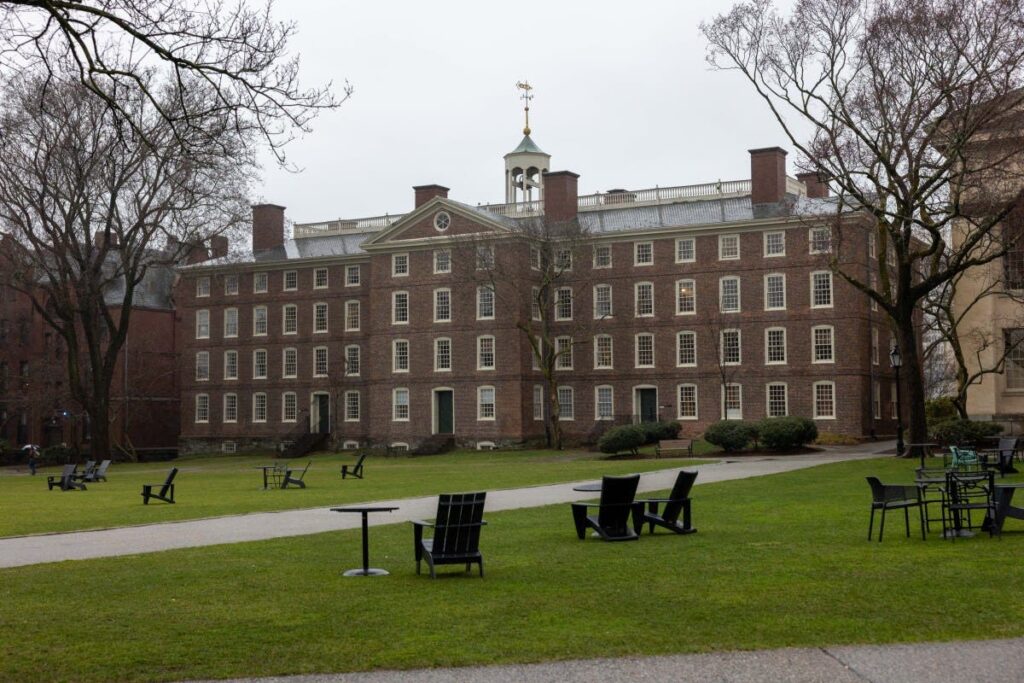Brown University on Wednesday rejected a White House proposal that would provide favorable access to federal funding in exchange for a wide range of commitments, saying the deal would restrict academic freedom and undermine the university’s independence.
Newsweek contacted Brown and the White House for comment via emails sent outside regular business hours.
Why It Matters
President Donald Trump’s administration has sought to get top universities to sign a 10-point ideological compact, which White House officials said would bring “multiple positive benefits” including “substantial and meaningful federal grants.”
Brown is the latest university to decline, after the Massachusetts Institute of Technology turned down the proposal last week.
It marks a new tactic by President Donald Trump’ administration to elicit changes at universities, but critics have slammed it as federal overreach into academic freedom and governance. The administration has previously frozen billions of dollars in research from universities it accuses of antisemitism and liberal bias.
What To Know
Brown President Christina Paxson turned down the proposal in a letter to Education Secretary Linda McMahon and White House officials.
The university is aligned with some of the provisions in the offer, but can’t agree to others, Paxson wrote in the letter.
“I am concerned that the compact by its nature and by various provisions would restrict academic freedom and undermine the autonomy of Brown’s governance, critically compromising our ability to fulfill our mission,” she wrote.
Brown was among nine universities invited to become the first signatories to the compact earlier in October.
In its letter to universities, the administration said the compact would strengthen and renew the “mutually beneficial relationship” between universities and the government. The letter said it was a proactive attempt at reform even as the government continues enforcement through other means.
The proposal includes several commitments around admissions, women’s sports and free speech. Much of it centers on promoting conservative viewpoints, with signatories required to commit to “transforming or abolishing institutional units that purposefully punish, belittle, and even spark violence against conservative ideas.”
While an official at the University of Texas system said they were “honored” that the University of Texas at Austin was invited, most other universities said only that they were reviewing it.
Brown struck a deal with the Trump administration in July to restore lost research funding and end federal investigations into discrimination.
As part of the agreement, Brown agreed to pay $50 million to workforce organizations in Rhode Island. The university also agreed to adopt the federal government’s definition of “male” and “female,” eliminate diversity targets in admissions and to renew partnerships with Israeli academics, among other terms.
Paxson said in the letter that unlike that agreement, which includes a clause affirming Brown’s academic freedom, the new proposal lacks any guarantee that the university would retain control over its curriculum or academic speech.
She added that her decision to decline signing the compact “aligns with he views of the vast majority of Brown stakeholders.”
What People Are Saying
Brown President Christina Paxson wrote in the letter to the White House: “The Brown community will remain focused on meeting the established commitments under the July 30 agreement, while safeguarding our mission and foundational academic values. At the same time, I remain dedicated to participating in any dialogue that is anchored in these values as discussions continue about how to improve American higher education.
“I maintain the firm belief that American colleges and universities are a cornerstone of innovation, growth, prosperity and national security for our nation. Brown is committed to maintaining the excellence of our nation’s colleges and universities.”
MIT President Sally Kornbluth said in a letter to Education Secretary Linda McMahon last week: “In our view, America’s leadership in science and innovation depends on independent thinking and open competition for excellence. In that free marketplace of ideas, the people of MIT gladly compete with the very best, without preferences. Therefore, with respect, we cannot support the proposed approach to addressing the issues facing higher education.”
President Donald Trump said in a lengthy post on his Truth Social platform on Sunday, in part: “To those Universities that continue to illegally discriminate based on Race or Sex, we will continue our current efforts to swiftly and forcefully enforce Federal Law. But for those Institutions that want to quickly return to the pursuit of Truth and Achievement, they are invited to enter into a forward looking Agreement with the Federal Government to help bring about the Golden Age of Academic Excellence in Higher Education.”
What’s Next
The Trump administration invited feedback from universities by October 20 and requested decisions no later than November 21.
This article includes reporting by The Associated Press.
Read the full article here

















